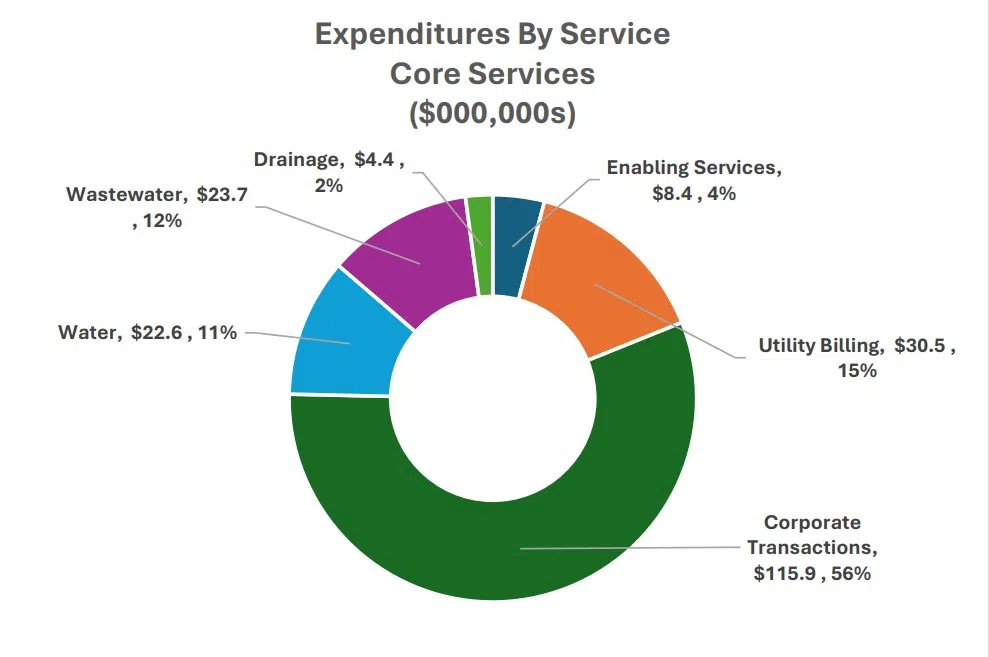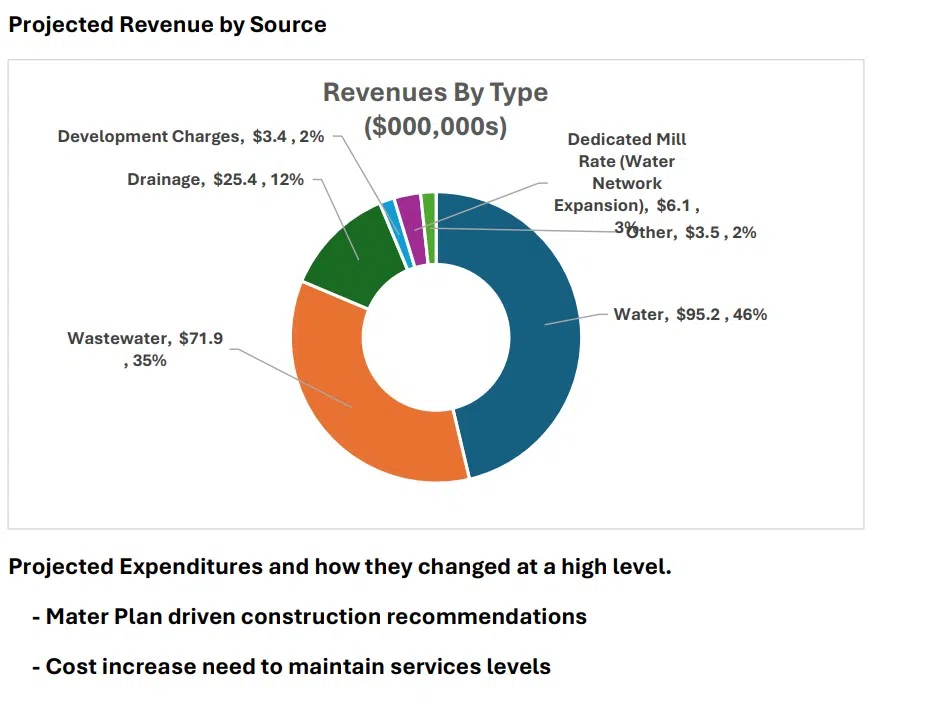Regina city council completed its final early budget meeting on Friday.
Council discussed a projected $17.4 million funding shortfall for its 2026 utility operating services and the city administration is projecting $205.5 million in expenditures compared to $188.1 million in revenues.
The numbers are based on the estimated costs for optimal but not current levels of service and aren’t a formal budget submission.
Administration said this could be addressed through raising utility rates, deferring utility capital projects or by taking on debt.
Read more:
- Regina considers 50 per cent surcharge for non-resident leisure registration
- REAL CEO Rick Bennett says organization’s financial situation is improving
- City of Regina to explore homeless encampment options, designated sites
It would take a 7.82 per cent utility rate increase in 2026 to cover this shortfall — about $14 per month for the average household.
“Today’s discussion was … a success in terms of highlighting the infrastructure deficit that we have and the work that we have to accomplish in order to play catch-up and to mitigate the risks of infrastructure failures,” said Mayor Chad Bachynski after the meeting.
Utility operating services encompass water, wastewater, stormwater and utility billing.

A breakdown of the projected 2026 expenditures by service for 2026. (Screenshot/City of Regina)

A breakdown of the sources of revenue generated for the utility operating budget. Projected utility revenues for 202 (Screenshot/City of Regina)
“When you look through the project list, basically we’re looking to maintain levels of service, enhance levels of service, reduce risk and vulnerability or accommodate growth,” said deputy city manager Kurtis Doney.
Coun. Shanon Zachidniak asked Doney what the impact of reducing the utility rate would be and how administration would handle it.
Doney said the city would likely recommend deferring small-diameter water main capital projects, which would result in more water main breaks.
For context, Doney said Regina’ had 145 water main breaks this year, below the city’s five-year average of around 214, due to its investments.
However, Doney did say that Regina generally has many breaks compared to other cities, adding that they cost the city about $4 million a year.
Zachidniak and Doney agreed that deferring costs on maintaining pipes can cause a domino effect in terms of damages and public costs, as did Ward 5 Coun. Sarah Turnbull.
“Our water and our pipes are so important …and you don’t really solve the problem of deferred maintenance by continuing to do the pattern that got you there,” Turnbull said.
“You don’t solve deferred maintenance by deferring maintenance.”

Daren Anderson, Regina’s chief financial officer, said on Oct. 3 2025 that the fall special council meetings have helped council’s understanding of the budget preparation process.(Daniel Reech/980 CJME)
Smooth new budget process
Friday’s meeting was the last in a series of advanced budget deliberations meant to improve transparency and give councillors more time to understand the budget preparation process.
Each meeting was intended to give city council and the public a step-by-step breakdown on how city administration prepares its budgets.
Chief financial officer Daren Anderson said Friday’s meeting went really well — and said that council is beginning to really understand the complexities that go into the budget process.
“Me and my team are very happy with the process and hopefully this will make the decision making, while not easy in December, a little bit more understandable,” Anderson said after the meeting.
Bachynski was also pleased with Friday’s meeting.
“There was lots of new information in terms of just diving into a greater level of detail this early,” he said.
“We would be presented with kind of the final product (of the draft budget) — that’s what we saw the last go around. This time, we’re seeing it more holistically over a longer period of time. (It’s) giving a council just a longer view of what we’re making decisions on in terms of the projects that we execute on.”
Bachynski said providing council with this sort of information months in advance has provided council with clarity.
Read more:











